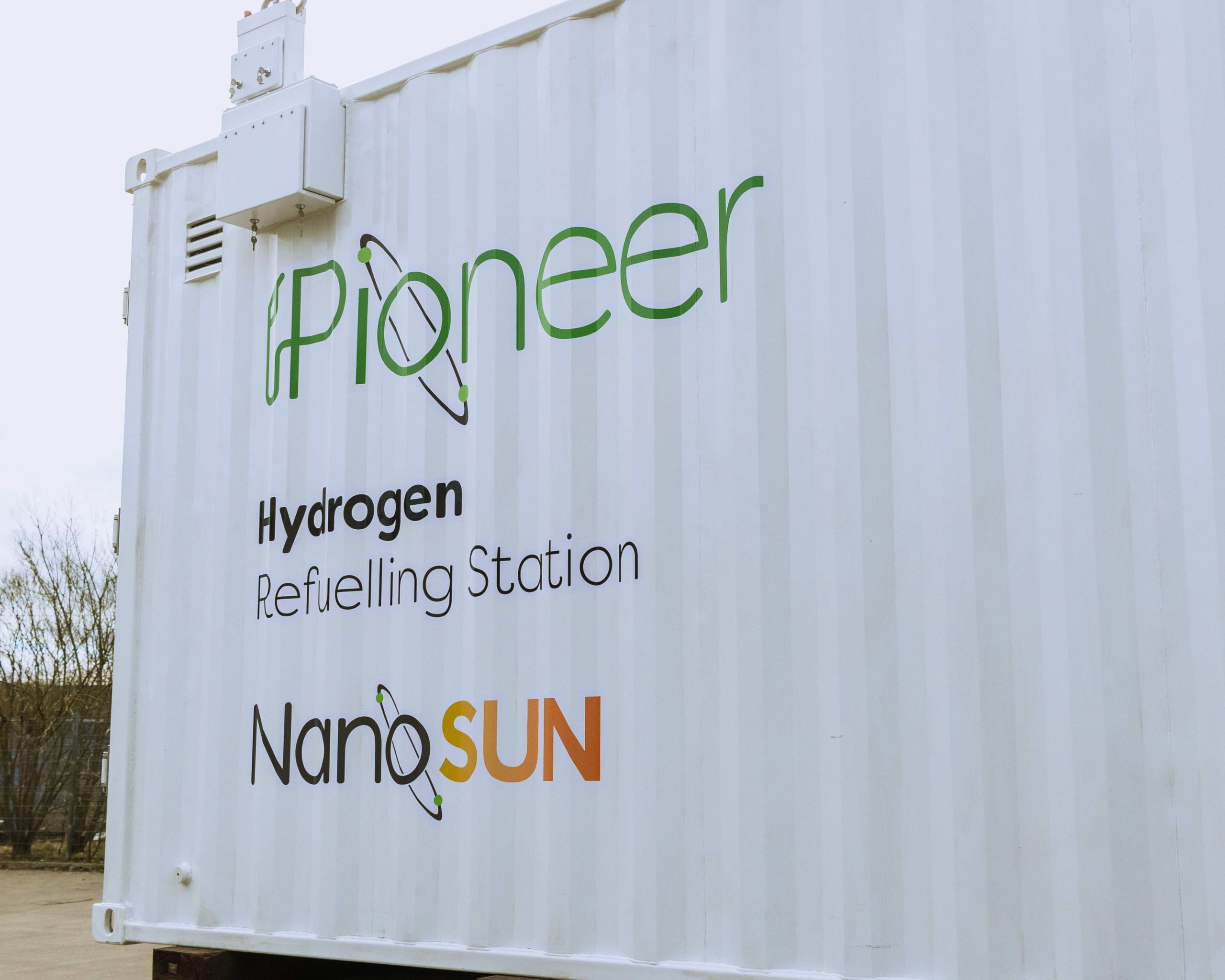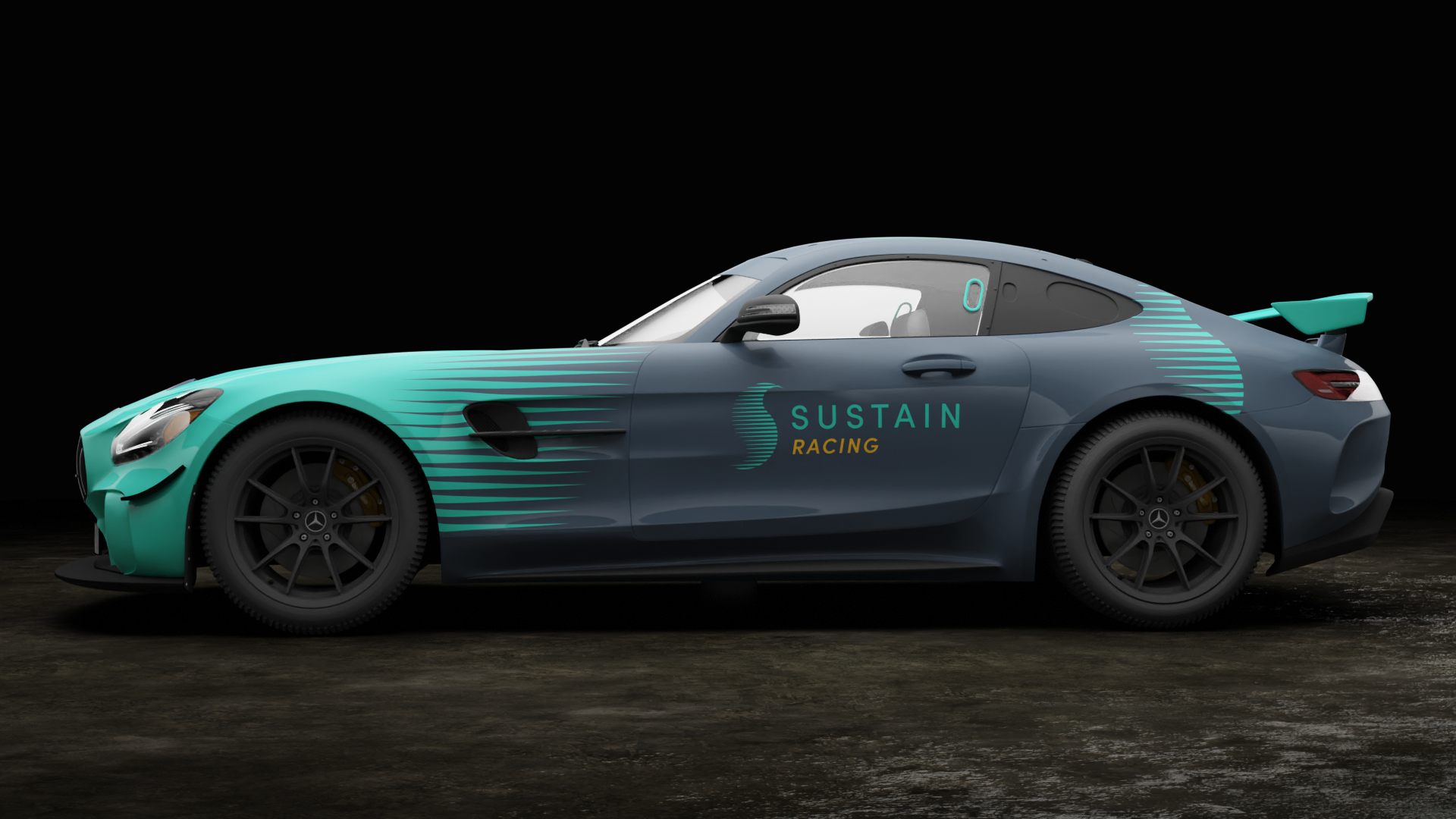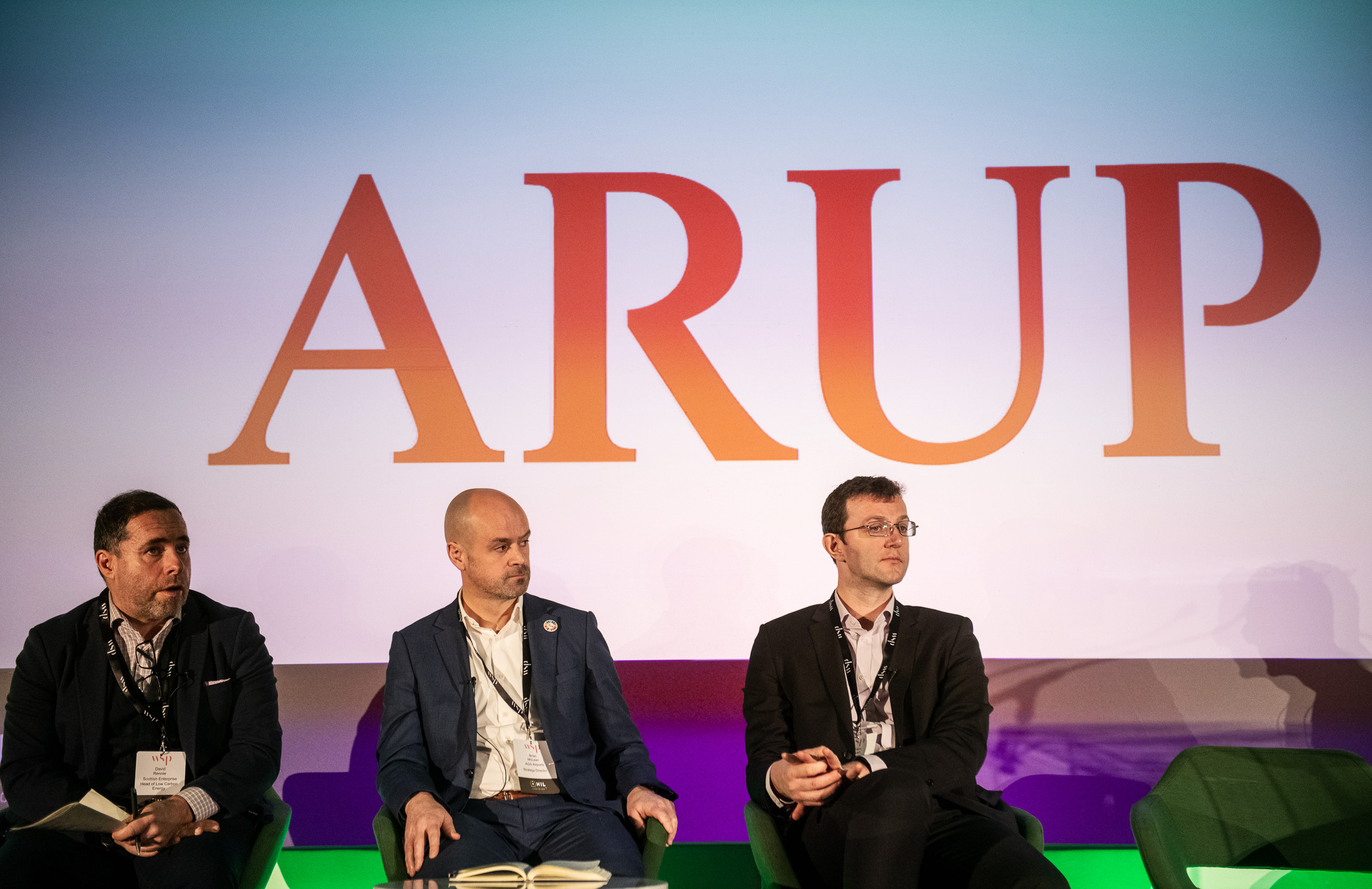NanoSUN: Accelerating Hydrogen-powered Mobility

Hydrogen Industry Leaders spoke to NanoSUN ahead of the HIL Scotland Conference, at the Radisson BLU, Glasgow, on 22 November 2022.
Hydrogen Industry Leaders spoke to Dean O’Connor, CEO at NanoSUN about the company and their journey so far in the hydrogen industry.

Dean O’Connor, CEO at NanoSUN
Dean began by explaining who NanoSUN is and how young company was originally founded by two people who were running a fuel cell technology company at the time. During this, the two kept running into the same conversation with their customers.
These customers were interested in deploying their fuel cell technology, but the question was, where do they get the hydrogen from?
NanoSUN’s mission is to bridge the gap between people who make hydrogen and those who are using hydrogen in mobility applications.
“We’re all about accelerating the transition and making it possible for people to get moving with hydrogen-powered mobility faster than they would otherwise be able to do.
“That means it’s about finding the lowest cost pathway, but also about finding the solutions that are quickest to deploy,” Dean said.
Hydrogen Is Offering Heavy-duty Vehicles A Sustainable Solution
The company started off by looking at smaller scale and how to deploy hydrogen fuel solutions for applications such as personal mobility bikes.
Dean revealed: “This was useful because it helped us to prove core technology concepts. Then it became obvious that the real kind of challenge here was how to do this at the scale required for human mobility and for heavy-duty vehicles.”
Heavy-duty vehicles seems to be the sector that hydrogen offers the greatest potential solution for.
To hear more about how NanoSUN is enhancing hydrogen infrastructure through innovative mobile refuelling, you can watch our recent webinar via the On-Demand link here.
Dean highlighted one of the flagship projects that NanoSUN has recently worked on: “In 2021, we built a prototype mobile hydrogen refuelling station, which we deployed in various applications in the UK and across Europe.
“From this, we began to receive a lot of interest from customers. This flagship project has since evolved into the next iteration of that product – the Pioneer station, which is focused on delivering a significant quantity of hydrogen in a mobile package.
“Our Pioneer Stations are integrated storage, distribution and dispensing hydrogen systems all in a single 20-foot container that goes on in the back of a truck. You fill it at the place where you make hydrogen, you take it to the place where vehicles are wanting to operate, and you dispense it directly into the hydrogen vehicle fleet.”
People Need Energy Security And Independence
Due to the current energy crisis, it is no secret that the themes of energy security and energy independence are on the minds of many people worldwide.
Dean highlighted the need for energy security in the industry right now: “The price of hydrogen is high, and it is causing some people to think about the timing of their project. Energy security and energy independence are the focus of a lot of people in government and senior people in the industry and across the world.
“There is a temporary effect here that works against even the really high-order mega-trend needs for energy independence and energy security. This is something I have realised already in Germany – it is starting to become really visible and we are probably a bit behind that here in the UK.
“In Germany, there is a tremendous level of subsidy available, but they tend to be all capital subsidy. That means that once you have installed the infrastructure or acquired the assets like the buses or the trucks, there is no subsidy on how they operate.”
When comparing to the UK, Dean explained that for mobility, the UK has got a mechanism called Artful Act, which subsides the operation. He expressed that through this you can cover a significant chunk of the cost of each kilogram of fuel if it is going into mobility through the subsidy mechanism.
Dean continued: “We have much less developed capital subsidy systems, but we do have the RTL in Germany. Our German friends and colleagues are looking at the stuff that the UK is doing, and it would actually help in Germany.
“We need to somehow work like Germany is with Canada. Let’s try some governmental-level links and help each other learn from them because I know these countries connect.”
We like what we do in Scotland, but I feel like the whole of the UK needs to step up.
HIL Scotland Conference Will Highlight Scotland’s Hydrogen Ecosystem
NanoSUN will be an Exhibitor at HIL Scotland Conference on 22 November 2022 at the Radisson BLU, Glasgow. Dean spoke about why it is so essential for industry leaders to come together at the event to drive forward the hydrogen ecosystem: “It is obvious to everybody involved in the hydrogen industry in the UK that Scotland is taking an early mover position, both at a governmental level and in the renewable energy resources available.”
To be part of a significant event that brings people involved in that industry together, it is a place that we feel we need to be.
Find out more about HIL Scotland on our event page here: https://hydrogenindustryleaders.com/events/hil-scotland-2022/.

